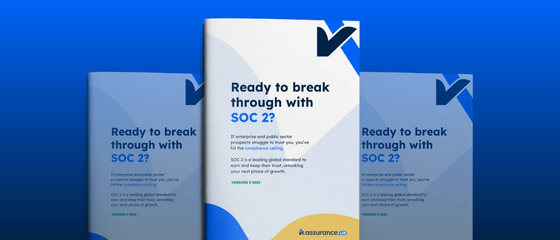This blog gives you a headstart on what to look for when selecting an audit firm by highlighting key factors to consider. By asking the right questions upfront, you can avoid surprises and ensure your chosen auditor meets your needs both now and as your compliance requirements grow.
For many businesses embarking on their first cybersecurity audit, selecting an audit firm can feel like navigating uncharted territory. Most people, understandably, start with what seems most straightforward—finding the lowest-cost option to achieve the required outcome. But as they go through the process, many realize there are significant differences between audit firms.
- Start with reviews
The best insights come from firsthand experiences, and client reviews, testimonials and case studies are powerful ways to assess an audit firm. Reviews reveal how well an auditor delivers not just the final report but the entire audit experience. Think of the clarity of their communication to responsiveness and overall professionalism.
Platforms like Drata's Auditor Directory and others provide networks of audit firms alongside client ratings and reviews. Use these to compare firms based on the real-world outcomes they’ve achieved for businesses similar to yours.
- Consider the firm’s reputation
An audit report is only as valuable as the trust it inspires. While traditional Big-4 firms have historically been seen as the gold standard, modern CPA firms are carving out their niche in cybersecurity audits.
When evaluating a firm’s reputation, ask probing questions:
- How are their reports perceived by customers and regulators?
- Have they received any negative feedback on their reports or had reports rejected?
- What do their peer review findings reveal about their quality control?
Transparency on these issues speaks volumes about an audit firm’s integrity and standing in the market.
- Understand the two types of quality: audit quality vs. service quality
When people talk about audit quality, they often focus on the technical credibility of the report itself. Ensuring it meets professional standards and regulatory requirements. While this is non-negotiable, it’s also largely the auditor's responsibility to maintain.
What’s often overlooked, but arguably just as important, is service quality. This includes the responsiveness of the audit team, their ability to guide you clearly through the process, and their support in reducing unnecessary back-and-forth.
Good service quality saves you time, avoids confusion, and reduces the stress that audits can bring. Businesses often find this level of care and support worth paying for.
- Check their communication style
Audit processes are complex, but good auditors simplify them for their clients. Assess how well a firm communicates during your initial conversations. Are they clear and proactive in explaining their process, timelines and requirements? This early interaction is often a good indicator of the experience you’ll have during the audit itself.
- Evaluate their technology capabilities
Modern compliance relies heavily on technology, and many businesses already use platforms like Drata or Vanta to streamline their compliance programs. Your auditor’s ability to integrate seamlessly with these platforms can make or break your audit experience.
Look for firms that fully leverage the automation provided by these tools, minimizing the need to manage additional software or redundant processes. A technology-aligned auditor ensures the audit process is efficient and contained within your existing compliance ecosystem.
- Assess the scope of services and add-ons
When you start with compliance, your focus may be narrow—perhaps a SOC 2 or ISO 27001 certification. However, as your business evolves, your needs will likely expand.
For example, you might need a SOC 3 report to share with customers, broaden the audit scope to include an acquired business, or add frameworks like HIPAA or GDPR compliance for new markets. Selecting an auditor capable of scaling with your requirements ensures you can maintain continuity without juggling multiple audit firms.
- Factor in industry experience
Cybersecurity audits require specific expertise, and an auditor with experience in your industry can offer tailored guidance. They’ll better understand the unique risks and regulatory expectations of your sector, streamlining the audit process and minimizing unnecessary work.
- Look for value beyond the report
An audit firm’s role doesn’t end with delivering the report. Many top-tier auditors provide year-round support, offer insights to strengthen your controls and suggest ways to optimize compliance efforts. Consider whether your potential auditor adds value by acting as a trusted advisor, rather than merely a box-ticking service.
- Consider geographic reach and market knowledge
If your business operates globally or plans to expand, choose an auditor with experience across multiple regions. They’ll be better equipped to handle nuanced compliance requirements in different markets, ensuring your reports are robust wherever they’re reviewed.
- Assess cost vs. value
Finally, while cost is an important factor, focus on the value you’re getting for your investment. Low-cost auditors may lack the resources to deliver the service quality or support you need, resulting in frustration and extra effort on your part.
The Bottom Line
Selecting an audit firm is about more than just getting a compliance certificate. It’s about finding a partner who understands your business, simplifies the process and helps you achieve your goals efficiently and effectively. Consider the big picture and prioritize an auditor that aligns with your business goals.







